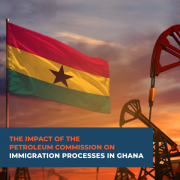NEWS | NEW UK POINTS-BASED IMMIGRATION SYSTEM – SET TO IMPACT EMPLOYERS RELIANT ON UNSKILLED WORKERS
/in Archived, News /by xp-adminThe UK Government has announced its plans to introduce a points-based-post-Brexit immigration system. Consequently, low-skilled workers and non-English speakers will no longer qualify for UK visas and the Home Office stated that EU and non-EU citizens intending to relocate and work in the UK, would be treated equally following the end if the UK-EU free movement on 31 December 2020.
Below an overview of the proposed new points-based-system.
A person would need 70 points to apply to work in the UK
| Characteristics | Essentials | Points |
| Offer of job by approved sponsor | 20 | |
| Job at appropriate skill level | 20 | |
| Speaks English at required level | 10 | |
| Salary of £20,480 (min) – £23,039 | 0 | |
| Salary of £203,480 (min) – £25,599 | 10 | |
| Salary of £25,600 or above | 20 | |
| Job in a designated shortage occupation | 20 | |
| Education qualification: PhD in subject relevant to job | 10 | |
| Education qualification: PhD in a Stem subject relevant to the job | 0 |
HOW WOULD THIS WORK?
The proposed points-based system indicates that any individual wishing to apply for work in the UK must have gained at least 70 points to qualify. In order to gain the prescribed amount of points, the individual must have at least a) received an offer of employment, b) hold the appropriate level of skill(s) to complete the job at hand, c) must be English speaking and d) receive a salary of +£25,600.00.
Where certain criteria cannot be met, the individual could alternatively gain points by occupying a position deemed critical, hold a PhD in relation to current employment and/or hold a PhD in a Stem subject relevant to the proposed employment.
In special circumstances, the lowest salary threshold of £20,480.00 will be considered for occupations that are deemed shortage of skills e.g. nursing.
WHAT CAN BE EXPECTED?
The Government hopes that weaning businesses from an inexhaustible supply of low skilled labour will increase wages, training, investment and productivity. “It is important that employers move away from a reliance on the UK’s immigration system and as alternative to investment in staff retention, productivity, and wider investment in technology and automation”, the briefing paper added.
Expectedly, the new policy drew immediate criticism from UK employers and industry leaders by accusing the Government of an assault to the economy and warned of “disastrous” consequences. The NHS as the 3rd largest employer for example has a work force made u of no less than 13% foreign nationals staff. UK employers further warned on staff shortages should insufficient time be provided for adjustment towards this new system. UK employers finally pointed out that certain low-skilled occupations are vital to wellbeing and business growth and this could be an end-the-era of low skilled EU labour in factories, warehouses, hotels and restaurants – this appears to be a remaining concern to UK employers and EU citizens.
INDUSTRIES EXPECTED TO BE HIT HARDEST BY THE NEW SYSTEM
- The social care sector – majority of people employed by the adult social care sector are low-paid workers providing daily help to older and disabled adults in care homes and the community. Foreign nationals currently make up 1 in 6 of the 840,000 care workers in England. Care work is not classed as a shortage occupation and will fall well short of the 70 points required with pay under £20,000 on average.
- Construction concerns over worker shortages – construction relies on foreign migrants for 10% of its workforce. Major infrastructure projects including the proposed building of a third runway at Heathrow, and ambitions to build more than 200,000 new homes per year mean that many construction firms fear that there are simply not enough UK workers to fill the gap these new restrictions will create.
- NHS needs smooth supply of foreign workers – with a number of jobs on the shortage-occupation list, including nursing, will make it easier to attain the 70 points needed to qualify. The pay attached to such jobs, unlike that of social care workers, will mean they can gain points too. However lower paid staff, such as healthcare assistants and porters, could be affected.
- Points system good for university scientists – they may take some reassurance from a points system weighted towards scientists and researchers. For instance, even if a maths researcher has a salary below the minimum threshold, they might still get enough additional points from having a PhD. The fast-track “global talent” entry route will be seen as recognition of a competitive, international market in attracting top scientists. They is however concern about losing staff below the income threshold, such as laboratory technicians.
- More temporary farm workers needed – the seasonal-workers scheme, which allows temporary workers access to the UK to harvest fruit, vegetables and flowers, has now been expanded from 2,500 to 10,000 places – but farming organisations say 70,000 are needed across the UK. Farms that also carry out food processing and packing say more clarity is needed on how those staff might be recruited.
- Visas may be harder for retail workers – people wanting to come to the UK to work in shops and cafes are likely to find it difficult to get a visa in the future. Anyone already here working in retail jobs will be able to stay and apply for settled status. But those wanting to come to the UK after the end of the transition period will need an offer of a “skilled” job paying more than £25,600.
The Government intends to launch a comprehensive campaign to prepare UK employers for the transformation in January 2021 when EU citizens will be considered and treated equal to other nationals.
Sources: The Guardian and BBC News





